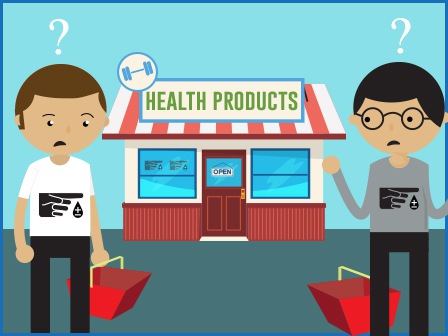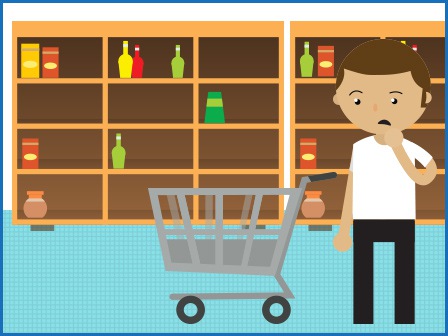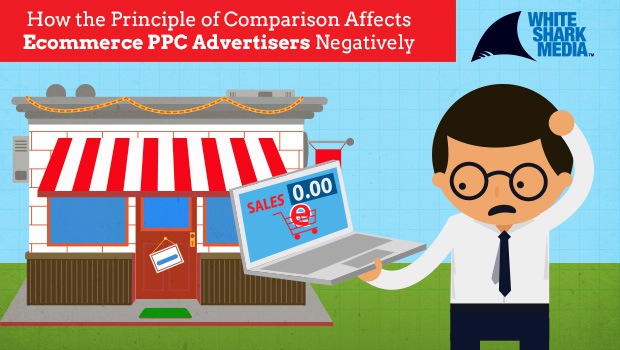I work with a lot of e-commerce stores and one of the things that strike me again and again is the flawed attitude that many e-commerce owners bring with them. For today’s post, I’ll try to tell a story about a typical marketing manager for a small to medium-sized e-commerce store. Let’s call him Thomas.
Thomas is the marketing manager for an e-commerce store that has been live for about 2 years. They are backed by a 32-year-old company with a big customer base. The idea behind opening the e-commerce store was to start reaching more people.
Let’s call the company Med Life Magic (no affiliation with anything). The company has been doing very well for themselves, but in the past 5 years their sales have been going the wrong way. Much of this is due to the increase in e-commerce transactions, which they haven’t been able to take advantage of, even though they have made several big investments in personnel and platform.
Expanding Their Customer Base or Sticking to Their Typical Customer
Thomas was in charge of taking Med Life Magic online. The board and CEO were adamant about expanding their reach to include common health enthusiasts as well. Their typical customer has always been people with diabetes who needs specific equipment, food, and exercise in order to manage their illness.
One of the things Med Life Magic did when they went online was taking all the products they had in their inventory and putting them online. They literally have a little bit of everything a diabetes patient would need.
To name a few of their product categories:
- Pulse Watches
- Diabetes Foods
- Cookbooks
- Insulin
- Needles
- Sugar Level Fests
- Pedometers (Step Counters)
- Pain Killers and Other OTC Medicines
- Band Aids
- Disinfectants
- Mosquito Repellent
- Thermometers
- Face Creams
- Hand Creams
- Socks
- Shoes
- Sandals
- Massagers
- Weights
- Blankets
And many, many more categories.
Managing such a big inventory is a complex task, and knowing exactly what products to buy for each category takes a lot of market knowledge.
However, when you dive into each specific product category, Med Life Magic only offers 1-5 choices within each product. Yes, they offer a lot of product categories to their users, but the choices within each category are very limited.
The Danger of Not Being Aligned with Your Target Audience

All of the products outlined above are suited for diabetes patients’ needs. If a diabetes patient reaches Med Life Magic’s website, they will be ecstatic about the overwhelming amount of product categories they can choose from on the website.
However, Med Life Magic’s big problem is that they aren’t trying to focus specifically on diabetes patients. They want to appeal to the average health enthusiast as well. This is the World Wide Web. Why not try to get everyone looking for relevant products to their website?
Their website is branded to health nuts, meaning that diabetes patients aren’t feeling particularly drawn to the website. Nothing on the site really says: “These products are carefully chosen for diabetes patients”, which is a big problem.
Without the Possibility of Comparing Products Users Start Doubting Themselves

Thomas has run user tests on the Med Life Magic’s website, and they have all revealed the same scenario. After entering Med Life Magic’s website, potential customers leave to do further research in a different site. This is the danger of having too many product categories and not enough actual choices within each category.
Even if you have the top 5 bestsellers in each category, you will experience a lot of users leaving your site to find more products to compare with. It’s human nature to compare things to each other:
• Millionaires don’t have “enough” because their friends are billionaires.
• Entrepreneurs who work 8 am to 7 pm feel like slackers because their peers work till midnight every day.
• Sony’s $500 camera takes better pictures than Canon’s $450 camera, so I’m choosing Sony.
• Canon’s $900 camera takes better pictures than Sony’s $500 camera, but it’s not worth the price.
We compare everything and anything. And when we don’t have enough information or choices to compare, we are left undecided about whether or not our choice is truly the correct one.
By now, Thomas has realized this is the exact problem that Med Life Magic faces. Even though they offer a lot of different great products, their users don’t know this. In the eyes of an AdWords professional it’s quite simple. The scenario of a user is the following:
1) A consumer searches for the keyword ‘best pedometer for day-to-day use‘
2) The searcher reaches your category page for Pedometer, and sees you only have 5 different pedometers. He instinctively knows that there are several hundred different pedometers on the market, so with a selection of only 5, he starts thinking that something must be missing. What if they can get a better pedometer for the same price? The pedometers being offered seem pretty good and can do all the things the searcher is looking for, but the doubt is still there. What if another pedometer is better?
3) The searcher leaves the site. He goes looking for another site with a bigger selection and better information.
You’ve now paid for clicks to your site, but they are all leaving once they land on your site because you’re not proving your products are the right products for them.
Takeaways from This Story
So what can we learn from this story?
Takeaway 1) Focus on Certain Categories and Stock Heavily
When you’re just starting out, it’s hard to get a lot of products in all categories. I recommend that you stock heavily (or just adequately) in a few popular categories. You can start out with AdWords campaigns for these specific categories and branch out later.
Takeaway 2) Don’t Create Broad AdWords Campaigns Until You Have a Big Enough Selection
This is a big one. Always know whom you’re competing against. Although you might stock the same 5 top products featured on Amazon’s bestseller list in a specific product category, it doesn’t mean you can sell as well as they can.
Remember shoppers compare everything. If we can’t compare the top 5 products with the 5 worst products in a category to confirm the quality of the products, we won’t buy them.
Always look to your competitors’ selection when you start advertising for specific product groups. Don’t think that you can make it work with few products. It hardly ever works.
Takeaway 3) Play to Your Strengths
Did you notice how Med Life Magic changed their company “brand” from being all about diabetes patients to trying to cater to all health and exercise enthusiasts?
If they had simply stated they only carry the best products for diabetes patients and used keywords like pedometer diabetes, chocolates diabetes etc., they could have produced a solid ROI. Even though the selection will still be small, users would have a completely different mindset about Med Life Magic. In this situation, having a small selection becomes an advantage rather than a disadvantage.
Image credits:
Illustration 1 “The danger of not being aligned with your target audience” created by author on 11/27/13.
Illustrations 2 “Limited product selection drives customers away” created by author on 11/27/13.




